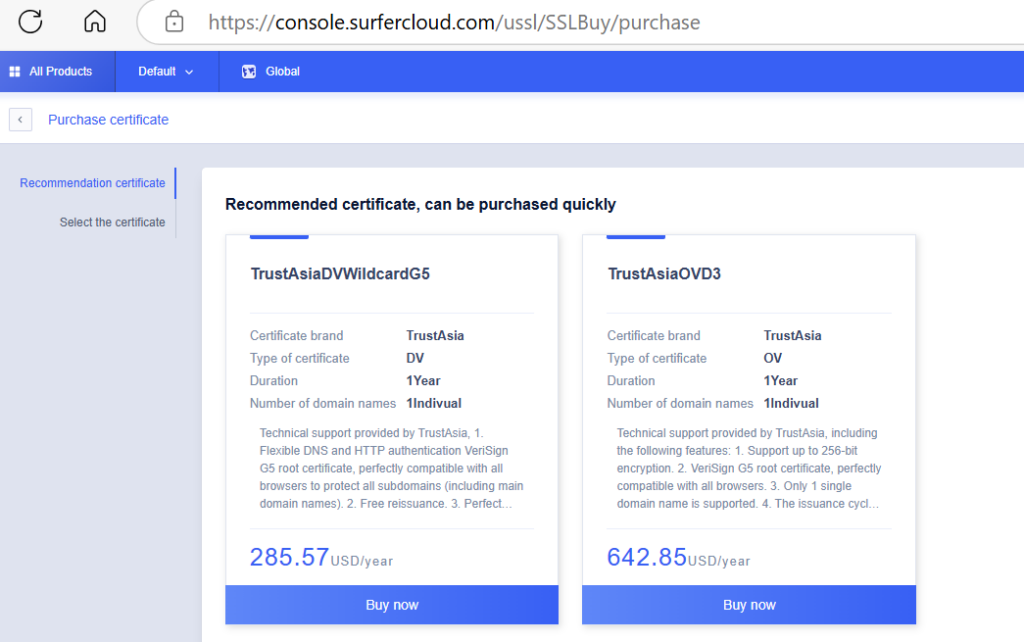LightNode Review: A Disappointing Experience
In the ever-growing world of web hosting, user reviews ...






In today’s digital world, ensuring the security of online communications is more important than ever. Understanding the differences between HTTP and HTTPS and the crucial role of SSL certificates is essential for anyone managing a website or online service.
HTTP, or Hypertext Transfer Protocol, is the foundation of data communication on the web. It is a protocol used to transfer hypertext such as HTML files, images, videos, and more from the web server to the user’s browser. Operating over TCP/IP, HTTP is the basic protocol for browsing the web, but it is not secure by default.
When a user requests a webpage, the browser sends an HTTP request to the server, and the server responds with the requested content. By default, HTTP uses port 80, though it can use other ports as well.

Key Features of HTTP:
HTTPS (Hypertext Transfer Protocol Secure) is the secure version of HTTP, implemented by adding an SSL/TLS layer to encrypt the communication between the browser and the web server. The key difference between HTTP and HTTPS is the level of security: while HTTP sends data in plaintext, HTTPS encrypts the data, ensuring that it remains confidential and safe from interception.
How HTTPS Works:
HTTPS is crucial for websites that handle sensitive data, such as e-commerce platforms, banking sites, and online services. Without HTTPS, any information transmitted, including login credentials and payment details, can be intercepted by hackers.
SSL certificates are the backbone of HTTPS. These digital certificates are issued by trusted Certificate Authorities (CAs) and are essential for establishing a secure connection. They perform two key functions:
The use of SSL certificates is vital in protecting sensitive information like credit card numbers, login details, and other private data. Additionally, websites with SSL certificates are given a higher ranking by search engines like Google, which further highlights the importance of implementing SSL security.
While SSL certificates offer encryption, their role extends beyond simple protection of data. With more and more phishing attacks and data breaches occurring globally, it’s essential for businesses and website owners to authenticate their sites and prevent malicious actors from impersonating their brands.
SSL certificates provide two main benefits:
Get Started: USSL - Default (surfercloud.com)

While SSL certificates are widely available, SurferCloud’s USSL certificate stands out for several reasons. Unlike many providers that require lengthy application processes or provide less customizable options, SurferCloud offers a seamless, secure solution for websites that prioritize user data protection.
SurferCloud's USSL certificates come with robust encryption features and an easy deployment process, ensuring your website can switch to HTTPS quickly and without hassle. Whether you're running an e-commerce store or a blog, USSL ensures your site remains secure from cyber threats and provides your users with the confidence they need to engage with your content.
Key Features of SurferCloud USSL:
Switching from HTTP to HTTPS is no longer just a recommendation—it’s a necessity for securing your website and protecting your users. With the added benefits of SSL certificates like SurferCloud’s USSL, you can ensure that your online presence is secure, trustworthy, and compliant with modern web standards.
For secure, easy-to-deploy SSL certificates, consider SurferCloud’s USSL to enhance your website’s security and give your users peace of mind.
In the ever-growing world of web hosting, user reviews ...
Automated trading has become a cornerstone of modern fi...
Hosting your own Minecraft server gives you the freedom...